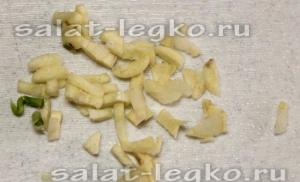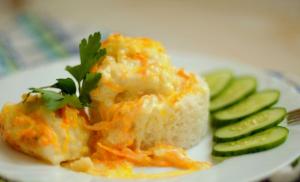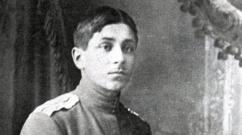Novosibirsk Institute of Internal Troops of the Ministry of Internal Affairs of the Russian Federation. Novosibirsk Military Institute of the Ministry of Internal Affairs of Russia
Major General Kutsenko Sergei Andreevich
Head of the Novosibirsk Military Institute
The Novosibirsk Military Institute was created by order of the USSR Ministry of Internal Affairs dated March 2, 1971 No. 0164 as a secondary military educational institution. In May 1973, in accordance with the Resolution of the Council of Ministers of the USSR, it was transformed into a higher military command school, with a training period of 4 years, and from August 1992, on the basis of the order of the Ministry of Internal Affairs of Russia dated June 30, 1992 No. 213, the training of officers for internal troops with a 5-year training period, with a higher military-special education and a civilian specialty in jurisprudence. By Government Order Russian Federation dated January 25, 1999 No. 153-r military school renamed the Military Institute of Internal Troops of the Ministry of Internal Affairs of Russia.
By order of the Government of the Russian Federation No. 1044 dated July 21, 2008, the Novosibirsk Military Institute of Internal Troops of the Ministry of Internal Affairs of Russia was renamed into the Novosibirsk Military Institute of Internal Troops named after Army General I.K. Yakovlev of the Ministry of Internal Affairs of Russia and subsequently in connection with the formation of the National Guard troops by order of the Director of the Federal Service of the National Guard Troops of the Russian Federation - Commander-in-Chief of the National Guard Troops of the Russian Federation dated October 1, 2016 No. 017, the military institute switched to the staff of the National Guard troops and is referred to as the Novosibirsk Military Institute named after Army General I.K. Yakovlev troops of the National Guard of the Russian Federation
The Military Institute trains officers for the troops of the National Guard of the Russian Federation in the specialties “Legal Support of National Security” and “Translation and Translation Studies.”
During its existence (46 years), the military institute trained 10,723 officers for the troops of the National Guard of the Russian Federation, of which 130 graduated with a gold medal, 1,660 with honors.
Organizationally, the military institute consists of:
Directorates, including: command, 6 departments (educational, research and editorial, publishing, personnel, personnel, combat, financial), 6 services (legal, duty, communications, engineering, chemical protection, medical), 2 groups (combat readiness and troop service), secret cartographic department, technical part and rear;
Main units, including: faculty (intelligence, which includes 2 departments and 5 companies of cadets), 5 battalions of cadets, 14 departments of the institute, postgraduate studies; support units, including: a training process support battalion, a communications center, an automated control system center, a training center (based in the city of Iskitim), a training and experimental workshop, a printing house, a military clinic, a military orchestra, a club, and a library.
Novosibirsk Military Institute of Internal Troops named after the General of the Army of the Ministry of Internal Affairs of the Russian Federation
https://pandia.ru/text/80/069/images/image002_21.png" width="273" height="279 src="> .jpg" alt="C:\Users\Dip\Desktop\Photo" width="140" height="351 src=">!}
.jpg" alt="C:\Users\Dip\Desktop\Photo" width="140" height="351 src=">!}
Novosibirsk 2015
admission to the Novosibirsk Military Institute of Internal Troops named after the General of the Army of the Ministry of Internal Affairs of the Russian Federation for the 2015-2016 academic year
I. Rules for admission to a military institute
 Platoon" href="/text/category/vzvod/" rel="bookmark">platoon, deputy company commander (deputy company commander for work with personnel) units operational purpose, special motorized military units, units for the protection of important government facilities and special cargo with the prospect of promotion to the position of company commanders. Graduates of a military institute with a degree in Translation and Translation Studies are intended to serve in the primary position of commander of a special purpose (reconnaissance) platoon, deputy group (company) commander (deputy group (company) commander for work with personnel) with the prospect of promotion to the position of commander special purpose (reconnaissance) groups (company).
Platoon" href="/text/category/vzvod/" rel="bookmark">platoon, deputy company commander (deputy company commander for work with personnel) units operational purpose, special motorized military units, units for the protection of important government facilities and special cargo with the prospect of promotion to the position of company commanders. Graduates of a military institute with a degree in Translation and Translation Studies are intended to serve in the primary position of commander of a special purpose (reconnaissance) platoon, deputy group (company) commander (deputy group (company) commander for work with personnel) with the prospect of promotion to the position of commander special purpose (reconnaissance) groups (company).
2. As candidates for enrollment in a military institute, cadets are considered male citizens of the Russian Federation who have a secondary general or secondary vocational education and have been vetted by the Russian Ministry of Internal Affairs and the Russian FSB from among:
citizens who have not passed military service, - aged 16 to 22 years;
citizens who have completed military service and military personnel undergoing military service upon conscription - until they reach the age of 24 years;
military personnel performing military service under a contract (except for officers) - after half the period of military service specified in the first contract, until they reach the age of 24 years.
 Military personnel wishing to enroll in a military institute, before December 1 of the year preceding the year of admission, submit a report on command addressed to the commander of the military unit.
Military personnel wishing to enroll in a military institute, before December 1 of the year preceding the year of admission, submit a report on command addressed to the commander of the military unit.
Persons from among the citizens who have and have not undergone military service, who have expressed a desire to enter a military institute, submit applications to the military commissariat of the municipality or to the internal affairs bodies at the place of residence before April 1 of the year of admission.
Attached to the application (report):
characteristics from the place of service (work) or study;
 a copy of the education document (a standard document on secondary general education, or a standard document on secondary education vocational education, or a state-issued document on primary vocational education received before September 1, 2013, which contains a record of receiving secondary (complete) general education) or information on current performance for those who have not completed their studies at the specified levels of education;
a copy of the education document (a standard document on secondary general education, or a standard document on secondary education vocational education, or a state-issued document on primary vocational education received before September 1, 2013, which contains a record of receiving secondary (complete) general education) or information on current performance for those who have not completed their studies at the specified levels of education;
results of professional psychological selection;
four certified photographs (size 4.5x6 cm);
materials of a special inspection of the Ministry of Internal Affairs of Russia and the FSB of Russia;
medical examination documents (ECG, drug test, certificates from narcological, tuberculosis and psychoneurological dispensaries, certificate from an infectious disease specialist, x-ray of the paranasal sinuses, FLG in frontal and lateral projections, blood sugar, HIV, biochemical and general tests, Wasserman reaction).
Passport, military ID or certificate of a citizen subject to conscription for military service and an original document of the established form on education, information about passing the unified state exam and its results, information about the presence or absence of individual achievements of the applicant (if there are results of individual achievements - indicating information about these achievements), as well as original documents certifying the special rights of admission to study at universities established by the legislation of the Russian Federation, are provided by the candidate to the admissions committee of a military institute upon arrival.
 The admissions committee monitors the accuracy of the information provided by applicants. In order to confirm the accuracy of the specified information, the selection committee has the right to contact the relevant state information systems, state (municipal) bodies and organizations.
The admissions committee monitors the accuracy of the information provided by applicants. In order to confirm the accuracy of the specified information, the selection committee has the right to contact the relevant state information systems, state (municipal) bodies and organizations.
All candidates arriving at a military institute are provided with free dormitory, meals according to established standards, educational
manuals and literature.
 3. Admission of citizens and military personnel to a military institute is carried out on a competitive basis based on the results of professional selection, conditioned by the entry of students into the federal state military service under a contract.
3. Admission of citizens and military personnel to a military institute is carried out on a competitive basis based on the results of professional selection, conditioned by the entry of students into the federal state military service under a contract.
Professional selection of candidates for admission to study from among citizens who have and have not undergone military service and military personnel is carried out from July 1 to July 28 at the training center of the military institute.
Candidates who successfully pass the professional selection are included in the competition lists and, based on the results of the competition, are enrolled in studies. Closing sessions admissions committee admissions will take place on July 29, 30. Candidates accepted by the decision of the admissions committee for study are appointed to military cadet positions by order of the head of the military institute from August 1. The start of classes for the newly recruited first year is August 1.
Professional selection includes:
 determination of a candidate’s suitability for admission to a university for health reasons (medical examination);
determination of a candidate’s suitability for admission to a university for health reasons (medical examination);
level assessment physical fitness candidate (physical fitness exam);
assessment of the level of general educational preparedness of the candidate based on the Unified State Examination results obtained in 2012 - 2015 inclusive, and additional entrance examinations in general education subjects:
when applying for the specialty “Legal Support of National Security”, social studies, Russian language, history and an additional entrance test in the form of an oral exam in social studies;
 upon admission to the specialty “Translation and Translation Studies” a foreign language, Russian language, history and an additional entrance test in the form of an oral and written (testing) exam in a foreign language (English or German).
upon admission to the specialty “Translation and Translation Studies” a foreign language, Russian language, history and an additional entrance test in the form of an oral and written (testing) exam in a foreign language (English or German).
The list of general education subjects is indicated in accordance with the priority of entrance examinations for ranking competitive lists in case of equality of the sum of competitive points.
List of entrance tests and features of admission to study of persons who are recognized as citizens of the Russian Federation in accordance with the Federal Constitutional Law of March 21, 2014 No. 6-FKZ “On admission to the Russian Federation of the Republic of Crimea and the formation of new subjects within the Russian Federation - the Republic of Crimea and the federal city of Sevastopol,” as well as persons who are citizens of the Russian Federation, permanently residing on the day of admission of the Republic of Crimea to the Russian Federation on the territory of the Republic of Crimea or on the territory of the federal city of Sevastopol, and studied in accordance with the state standard and (or) The curriculum of general secondary education approved by the Cabinet of Ministers of Ukraine (hereinafter referred to as persons permanently residing in Crimea) is established in paragraph 7.
The results of all entrance tests, including additional entrance tests, are assessed on a 100-point scale.
schedule Operating mode:
Mon., Tue., Wed., Thu., Fri. from 09:00 to 18:00
General information
Federal state government military educational institution higher education“Novosibirsk Military Institute of Internal Troops named after Army General I.K. Yakovlev of the Ministry of Internal Affairs of the Russian Federation"
License
No. 02488 valid indefinitely from 12/01/2016
Accreditation
No. 02464 is valid from 01/11/2017 to 04/01/2020
About NVI VV Ministry of Internal Affairs of Russia
An educational institution specializing in training officers to replenish the internal troops of the Russian Ministry of Internal Affairs, was founded in Novosibirsk in 1971. Over the 42 years of its existence, the military institute has graduated more than 10,000 officers with higher military education, many of whom were awarded high military ranks and state awards.
As applicants educational institution Boys aged 16-24 with citizenship of the Russian Federation, as well as completed general or complete secondary education, can compete. Admission to the Novosibirsk Military Institute is carried out for the following programs of higher professional education (specialty): “Legal Support of National Security”, “Translation and Translation Studies”. Upon completion of training, graduates receive the qualification “Specialist” and the military rank of lieutenant. The duration of study is 5 academic years. Scientific-pedagogical and scientific personnel are also trained on the basis of postgraduate studies of the educational institution in the specialties “General pedagogy, history of pedagogy and education”, “Theory and methods of vocational education”, “General psychology, personality psychology, history of psychology”. To enter an adjunct program, you must provide a report with an application necessary documents, including a list of published scientific papers.
The course of the educational process and methodological work at the Novosibirsk Military Institute of Internal Troops is ensured by reliable and experienced teaching staff. During the training, students will not only have to immerse themselves in combat tactics, but also study a number of fundamental subjects and disciplines, undergo educational and legal practice, and military internship. The university's curricula comply with federal educational standards. Great attention is paid to the sports training of cadets.
Students of the military institute are provided with full state support, including monetary allowance, as well as free food, accommodation, and travel on public transport. As part of the curriculum, cadets annually receive a summer vacation (30 days) and a winter vacation (15 days). Travel to the vacation destination (in Russia) is also paid from the state budget. In parallel with the basic qualifications awarded to graduates, they are issued a license to drive a category B and C vehicle.
The university administration monitors the moral and psychological state of the educational staff. Quality improves regularly educational process, measures are being taken to strengthen military discipline, and law and order measures are being observed. Relations between employees are regulated by statutory rules. The organization of cultural events for students is often joint with other educational institutions of the city, religious and military-patriotic organizations. Museum and archival work is actively carried out. Sports events are organized for the institute's national teams, which represent the university in competitions in officer quadathlon, hand-to-hand combat, football and swimming, cross-country skiing, biathlon, and volleyball.
Graduates of the educational institution find employment during their studies; their employer is the Russian Ministry of Defense. In addition, graduates have the opportunity to continue their studies at the Novosibirsk Military Institute of Internal Troops, as well as at other military institutes and academies.
Novosibirsk Military Institute of Internal Troops named after. I.K. Yakovleva is one of the best specialized educational institutions for training future intelligence officers, translators, special forces commanders, and career officers. Graduates receive primary positions as leaders of explosive platoons or deputy company commanders with the prospect of obtaining the position of commander of a special forces group.
Historical background
In the spring of 1971, in the vicinity of the Klyuch-Kamyshensky plateau, it was decided to organize the Novosibirsk Military School in order to optimize military training for natives of Siberia. Before this, cadets from Trans-Urals had to go to the central regions of the USSR, which was inconvenient and expensive. Later, the NVU was renamed the Higher Command School. In 1999, the educational institution was reorganized into the Novosibirsk Military Institute of Russia named after. I. K. Yakovleva.
Ivan Kirilovich, being the commander-in-chief of the VV, initiated the creation of the institution. Having attended the first graduation in 1976, he gave a flattering assessment of both the team and the material and technical base. Since then, the bar, now set by military veterans, has not been lowered. Intelligence officers, analysts, and military translators of the highest level are trained here.

Description
The Novosibirsk Military Institute of Internal Troops carries out state orders for the training of highly professional officers for explosives, special reconnaissance units and operational units guarding important government facilities. Training is carried out full-time for a period of 5 years, the applicant must complete 11 classes.
Currently, almost 60% of the teaching staff are persons with an academic degree. Among them are 30 doctors of science and professors, 67 candidates (associate professors), equivalent to persons with an academic degree (title), - 56 people.
At the military institute, two members of the scientific and pedagogical team were awarded the academic degree of candidate (Colonel A. Pomerlyan, Lieutenant Colonel A. Vinogradov). 21 applicants and 23 adjuncts continue to actively work on dissertation research, including 2 people working on doctoral dissertations. During the same period, colonels V. Shitko and A. Kravets were awarded the academic title of associate professor.
It is considered a great honor and success to be admitted to the Novosibirsk Military Institute of Internal Troops of the Ministry of Internal Affairs of the Russian Federation. The passing score is determined by the results of the Unified State Exam and additional tests. It is at least 39 points in social studies, 36 in Russian, 32 in history and 20 in foreign languages. However, a prerequisite for admission is impeccable physical and mental health. At the institute, even at the stage of medical examination, a significant part of applicants is eliminated. Being an officer of internal troops means not only easily enduring sometimes exorbitant physical activity, but also be able to quickly navigate a rapidly changing environment and make responsible decisions.
Over 45 years, 13,000 graduates who have achieved outstanding success have left NVI VV. Among them are 6 Heroes of Russia, over 50 military generals.

Novosibirsk Military Institute of Russia: reviews
According to reviews from cadets, when they enter the NVI VV, they radically change their living conditions, learn discipline, and strengthen their spirit. It is especially difficult in the 1st year, when a restructuring of the very way of life occurs. According to statistics, out of 10 admitted to best case scenario two make it to graduation. By the second year, former students are getting used to a new routine.
Students note the interest of military teachers in the achievement of cadets good results, high level of knowledge delivery, abundance of practical training. Equally important are decent living conditions, food, and exemplary order. Additional bonuses include full social security, the opportunity to obtain a driver's license, a 30-day summer and a 15-day winter vacation, and allowance. By the way, vacationers get home free of charge.
Intelligence Faculty
Since 2007, the Novosibirsk Military Institute of Internal Troops of the Ministry of Internal Affairs of Russia has specialized in training commanders of reconnaissance military units and special forces groups. The faculty has two specialized departments: Translation Studies and Service and Combat Use of Special Purpose and Intelligence Units (SBP PSPN RP).
The departments deal with educational, methodological and scientific work in two disciplines: intelligence and SBP of internal troops. There are a military circle and subject-methodological commissions. The cadets are taught by former commanders of service and combat units with practical experience. The officers of the department are still trusted to carry out complex tasks in the zones interethnic conflicts, in areas of emergency. A number of teachers have been awarded government awards.

Objectives of the department
The Novosibirsk Military Institute of Internal Troops of the Ministry of Internal Affairs has gained rich experience in the study of SBP PSPN RP and linguistics. Particular emphasis is placed on developing practical skills in rapidly changing combat conditions. Cadets study:
- Requirements federal laws and other guidance documents regulating the actions of internal troops.
- The tasks of the platoon (company) commander in organizing and leading the unit’s security forces in various situations.
- General provisions for organizing and conducting a special operation.
- Actions of the head of a special unit after receiving a task to participate in the joint investigation.
- Peculiarities of conducting intelligence to search for and neutralize saboteurs, enemy landings, illegal armed groups, armed criminals, deserters, freeing hostages, and countering mass riots.
Cadet Responsibilities
The Novosibirsk Military Institute of Internal Troops poses difficult tasks for students. The graduate must have the skills to organize the actions of the assigned unit in various situations, plan the group’s actions for at least a day when performing a task, and correctly maintain service and combat documentation.
He must:
- organize and manage the SBD unit;
- manage a group when performing tasks in peacetime and wartime;
- rational use of forces and means in combat service;
- maintain high combat readiness of subordinates;
- organize and carry out work to prevent deaths and injuries of personnel.

Intelligence
Intelligence is perhaps the most “romantic” position in the army and airborne forces. He must, on the one hand, be a bit of an adventurer, and on the other, soberly assess the situation and plan risks. Be a professional in many areas: from analytics and deep knowledge of psychology to hand-to-hand combat and the ability to wield any type of weapon, even heavy. The Novosibirsk Military Institute of Internal Troops is able to train the future army elite.
The department teaches:
- Methods of conducting reconnaissance in modern combat.
- Fundamentals of work and rules for operating technical equipment.
- Combat capabilities of military reconnaissance.
- Conducting electronic surveillance.
- Fundamentals of air reconnaissance. Direct aircraft to targets for strikes, provide target designations, and the necessary data for other fire weapons.
- Tactics and combat capabilities of landing forces, DRGs, terrorist, anti-constitutional groups and methods of counteraction.
- Conducting reconnaissance in battle, during joint operations and movement of units.
- Detect objects (targets) to hit and determine coordinates.
- Safety measures and organization of insurance and self-insurance when overcoming various mountain obstacles. Tie knots for tying ropes, individual and group mountain equipment.
- Establish the degree of passability of the terrain, the boundaries and extent of destruction, and determine the directions for overcoming them.
- Destroy (disable) control posts, warehouses, and other important objects of illegal armed groups, DRGs, and enemy landing forces.
- Assess the situation, determine physical-geographical and weather conditions, predict its changes. Manage reconnaissance units during the implementation of security protection.
- Manage subordinates, forces and assets in various situations. Independently master new models of standard technical equipment.
- Apply the acquired knowledge when working with the local population.
- Put the decision on the working map and draw up other information documents of the intelligence agency.

Advanced training
The Novosibirsk Military Institute of Internal Troops is simultaneously training command staff. Commander training is dedicated to improving the skills of officers whose competence is to manage units within the scope of their positions and one step higher in both peacetime and wartime.
The basis of training is planned classes in groups, educational training sessions, independent work, and military scientific work. Classes are organized and conducted in accordance with the plan and schedule. Carrying out the above activities will allow officers of the institute to acquire a new specialty, conduct dissertation research, consolidate and improve professional experience.

Museum
In 1978, the Novosibirsk Military Institute of Internal Troops of the Ministry of Internal Affairs of the Russian Federation organized the collection and exhibition of valuable relics, documents, and military banners. At first it was a storage room, which over time grew into a full-fledged museum. In addition to storage, the department is engaged in scientific work - studying the historical facts of the activities of the school/institute, its teachers and graduates who have achieved outstanding results.
An important mission of the museum is also to popularize the profession of cadets. The exposition was assembled piece by piece by activists with the direct participation of the head of the school Alexander Nikolaevich Rozhkin, the head of the political department Sagir Mukhametovich Mukhametshin, WWII participant Nikolai Alexandrovich Ivanov and others.
The Novosibirsk Military Institute of Internal Troops of the Ministry of Internal Affairs of Russia is equipped technical means for storing more than 3,000 valuable exhibits, broadcasting audio materials and newsreels. Today the museum includes 4 halls. Some materials are stored in a storage room.
Novosibirsk Military Institute of Internal Troops named after Army General I.K. Yakovlev of the Ministry of Internal Affairs of the Russian Federation
Rules
admission to the Novosibirsk Military Institute of Internal Troops named after Army General I.K. Yakovlev of the Ministry of Internal Affairs of the Russian Federation for the 2015-2016 academic year


Novosibirsk 2015
admission to the Novosibirsk Military Institute of Internal Troops named after Army General I.K. Yakovlev of the Ministry of Internal Affairs of the Russian Federation for the 2015-2016 academic year
I. Rules for admission to a military institute
1
 . Admission to the military institute is carried out in the specialty 40.05.01 “Legal Support of National Security”, qualification “Lawyer” with a training period of 5 years and 45.05.01 “Translation and Translation Studies”, qualification “Linguist-Translator” with a training period of 5 years. The military institute trains officers for the internal troops of the Russian Ministry of Internal Affairs. Those who graduate from a military institute are awarded the military rank of lieutenant and given a state diploma. Graduates of the military institute with a specialty in “Legal support of national security” are intended for military service in the primary position of platoon commander, deputy company commander (deputy company commander for work with personnel) of operational units, special motorized military units, units for the protection of important government facilities and special cargo with the prospect of promotion to company commander positions. Graduates of a military institute with a degree in Translation and Translation Studies are intended to serve in the primary position of commander of a special purpose (reconnaissance) platoon, deputy group (company) commander (deputy group (company) commander for work with personnel) with the prospect of promotion to the position of commander special purpose (reconnaissance) groups (company).
. Admission to the military institute is carried out in the specialty 40.05.01 “Legal Support of National Security”, qualification “Lawyer” with a training period of 5 years and 45.05.01 “Translation and Translation Studies”, qualification “Linguist-Translator” with a training period of 5 years. The military institute trains officers for the internal troops of the Russian Ministry of Internal Affairs. Those who graduate from a military institute are awarded the military rank of lieutenant and given a state diploma. Graduates of the military institute with a specialty in “Legal support of national security” are intended for military service in the primary position of platoon commander, deputy company commander (deputy company commander for work with personnel) of operational units, special motorized military units, units for the protection of important government facilities and special cargo with the prospect of promotion to company commander positions. Graduates of a military institute with a degree in Translation and Translation Studies are intended to serve in the primary position of commander of a special purpose (reconnaissance) platoon, deputy group (company) commander (deputy group (company) commander for work with personnel) with the prospect of promotion to the position of commander special purpose (reconnaissance) groups (company).
2. As candidates for enrollment in a military institute, cadets are considered male citizens of the Russian Federation who have a secondary general or secondary vocational education and have been vetted by the Russian Ministry of Internal Affairs and the FSB of Russia from among:
citizens who have not completed military service - aged 16 to 22 years;
citizens who have completed military service and military personnel undergoing military service upon conscription - until they reach the age of 24 years;
military personnel performing military service under a contract (except for officers) - after half the period of military service specified in the first contract, until they reach the age of 24 years.
IN  military personnel wishing to enroll in a military institute, before December 1 of the year preceding the year of admission, submit a report on command addressed to the commander of the military unit.
military personnel wishing to enroll in a military institute, before December 1 of the year preceding the year of admission, submit a report on command addressed to the commander of the military unit.
Persons from among the citizens who have and have not undergone military service, who have expressed a desire to enter a military institute, submit applications to the military commissariat of the municipality or to the internal affairs bodies at the place of residence before April 1 of the year of admission.
Attached to the application (report):
autobiography;
characteristics from the place of service (work) or study;
To  copy of the education document (a standard document on secondary general education, or a standard document on secondary vocational education, or a state document on primary vocational education received before September 1, 2013, which contains a record of receiving secondary (complete) general education ) or information on current performance for those who have not completed their studies at the specified levels of education;
copy of the education document (a standard document on secondary general education, or a standard document on secondary vocational education, or a state document on primary vocational education received before September 1, 2013, which contains a record of receiving secondary (complete) general education ) or information on current performance for those who have not completed their studies at the specified levels of education;
results of professional psychological selection;
four certified photographs (size 4.5x6 cm);
materials of a special inspection of the Ministry of Internal Affairs of Russia and the FSB of Russia;
medical examination documents (ECG, drug test, certificates from narcological, tuberculosis and psychoneurological dispensaries, certificate from an infectious disease specialist, x-ray of the paranasal sinuses, FLG in frontal and lateral projections, blood sugar, HIV, biochemical and general tests, Wasserman reaction) .
Passport, military ID or certificate of a citizen subject to conscription for military service and an original document of the established form on education, information about passing the Unified State Exam 1 and its results, information about the presence or absence of individual achievements of the applicant (if there are results of individual achievements - with indicating information about the specified achievements), as well as original documents certifying the special rights of admission to study at universities established by the legislation of the Russian Federation, are provided by the candidate to the admissions committee of the military institute upon arrival.
P  The admissions committee monitors the accuracy of the information provided by applicants. In order to confirm the accuracy of the specified information, the selection committee has the right to contact the relevant government information systems, state (municipal) bodies and organizations.
The admissions committee monitors the accuracy of the information provided by applicants. In order to confirm the accuracy of the specified information, the selection committee has the right to contact the relevant government information systems, state (municipal) bodies and organizations.
All candidates arriving at a military institute are provided with free dormitory, meals according to established standards, educational
manuals and literature.
3 . Admission of citizens and military personnel to a military institute is carried out on a competitive basis based on the results of professional selection, conditioned by the entry of students into the federal state military service under a contract 2.
. Admission of citizens and military personnel to a military institute is carried out on a competitive basis based on the results of professional selection, conditioned by the entry of students into the federal state military service under a contract 2.
Professional selection of candidates for admission to study from among citizens who have and have not undergone military service and military personnel is carried out from July 1 to July 28 at the training center of the military institute.
Candidates who successfully pass the professional selection are included in the competition lists and, based on the results of the competition, are enrolled in studies. The final meetings of the admissions committee will take place on July 29 and 30. Candidates accepted by the decision of the admissions committee for study are appointed to military cadet positions by order of the head of the military institute from August 1. The start of classes for the newly recruited first year is August 1.
Professional selection includes:
O  determining a candidate’s suitability for admission to a university based on health conditions (medical examination);
determining a candidate’s suitability for admission to a university based on health conditions (medical examination);
assessment of the candidate’s level of physical fitness (physical fitness exam);
assessment of the level of general educational preparedness of the candidate based on the results of the Unified State Examination obtained in 2012 - 2015 inclusive, and additional entrance tests 1 in general education subjects:
when applying for the specialty “Legal support of national security”, social studies, Russian language, history and an additional entrance test in the form of an oral exam in social studies;
n  Upon admission to the specialty “Translation and Translation Studies” a foreign language, Russian language, history and an additional entrance test in the form of an oral and written (testing) exam in a foreign language (English or German).
Upon admission to the specialty “Translation and Translation Studies” a foreign language, Russian language, history and an additional entrance test in the form of an oral and written (testing) exam in a foreign language (English or German).
The list of general education subjects is indicated in accordance with the priority of entrance examinations for ranking competitive lists in case of equality of the sum of competitive points.
List of entrance tests and features of admission to study of persons who are recognized as citizens of the Russian Federation in accordance with the Federal Constitutional Law of March 21, 2014 No. 6-FKZ “On admission to the Russian Federation of the Republic of Crimea and the formation of new subjects within the Russian Federation - the Republic of Crimea and the federal city of Sevastopol”, as well as persons who are citizens of the Russian Federation, permanently residing on the day of admission to the Russian Federation of the Republic of Crimea on the territory of the Republic of Crimea or on the territory of the federal city of Sevastopol, and studied in accordance with state standard and (or) the curriculum of general secondary education approved by the Cabinet of Ministers of Ukraine (hereinafter referred to as persons permanently residing in Crimea) are established in paragraph 7.
The results of all entrance tests, including additional entrance tests, are assessed on a 100-point scale.
The minimum number of points for the Unified State Exam and additional entrance tests (entrance tests conducted by the military institute independently), confirming their successful completion, is:
in Russian language 36 points;
in history 32 points;
in social studies 42 points;
in foreign languages 22 points;
in physical fitness 30 points.
P  If there are several USE results that have not expired, the applicant indicates in the application which USE results and in which general education subjects he is using.
If there are several USE results that have not expired, the applicant indicates in the application which USE results and in which general education subjects he is using.
Preparatory courses for applicants to educational organizations Higher education is not provided at the military institute.
Candidates who arrive to take entrance exams are required to undergo testing on a voluntary basis and at their own expense for drug use, psychotropic substances and alcohol 1.
4. Special rights granted to candidates upon admission.
4.1. No entrance tests 2 (without assessing the level of general educational preparedness of candidates based on the results of the Unified State Exam, additional entrance test and entrance tests conducted by the military institute independently) , provided they meet all other professional selection requirements, the following are accepted:
winners and runners-up final stage All-Russian Olympiad schoolchildren in subjects:
n  upon admission to the specialty Legal support of national security - “Russian language”, “History”, “Social studies”, “Law”, “ Foreign language", "Informatics and ICT", " Physical culture»;
upon admission to the specialty Legal support of national security - “Russian language”, “History”, “Social studies”, “Law”, “ Foreign language", "Informatics and ICT", " Physical culture»;
upon admission to the specialty Translation and Translation Studies - “Russian Language”, “Literature”, “History”, “Social Studies”, “Foreign Language”, “Informatics and ICT”, “Physical Education”;
members of national teams the Russian Federation, participating in international olympiads in similar subjects and formed in the manner determined by the Ministry of Education and Science of Russia;
n  winners and prize-winners IV stage of all-Ukrainian student Olympiads from among persons permanently residing in Crimea, in the subjects:
winners and prize-winners IV stage of all-Ukrainian student Olympiads from among persons permanently residing in Crimea, in the subjects:
upon admission to the specialty Legal Support of National Security - “Russian Language and Literature”, “Jurisprudence”, “Foreign Language”, “Informatics”, “Information Technologies”, “Physical Culture”;
n  upon admission to the specialty Translation and Translation Studies - “Russian Language and Literature”, “Foreign Language”, “Computer Science”, “Information Technologies”, “Physical Culture”;
upon admission to the specialty Translation and Translation Studies - “Russian Language and Literature”, “Foreign Language”, “Computer Science”, “Information Technologies”, “Physical Culture”;
members of national teams Ukraine, who participated in international Olympiads in similar general education subjects, from among persons permanently residing in Crimea (hereinafter referred to as members of Ukrainian national teams from among persons permanently residing in Crimea);
winners and runners-up Olympiads for schoolchildren of the Russian Federation of levels I, II and III, the profiles of which correspond to general education subjects according to the List for the 2014-2015 academic year, conducted in the manner established by the Ministry of Education and Science of Russia 1:
upon admission to the specialty Legal support of national security - “Russian language”, “History”, “Social studies”, “Law”, “Foreign language”, “Informatics”;
upon admission to the specialty Translation and Translation Studies - “Russian Language”, “Literature”, “History”, “Foreign Language”, “Social Studies”, “Informatics”.
P  winners and prize-winners of Olympiads for schoolchildren of the Russian Federation (except for persons permanently residing in Crimea) must have Unified State Examination results of at least 65 points in the specified general education subjects (for the subject “Law” - Unified State Exam in Social Studies, for the subject “Informatics” - Unified State Exam in Informatics and ICT ).
winners and prize-winners of Olympiads for schoolchildren of the Russian Federation (except for persons permanently residing in Crimea) must have Unified State Examination results of at least 65 points in the specified general education subjects (for the subject “Law” - Unified State Exam in Social Studies, for the subject “Informatics” - Unified State Exam in Informatics and ICT ).
To use a special right or advantage, winners and prize-winners of the All-Russian Olympiad must present a diploma of the winner or prize-winner of the final stage of the All-Russian Olympiad for schoolchildren, the validity of which is not limited, or a document confirming receipt of such a diploma.
D  For the use of a special right or advantage by the winners and prize-winners of the IV stage of the All-Ukrainian student Olympiad from among persons permanently residing in Crimea - a document confirming that the applicant became the winner or prize-winner of the IV stage of the All-Ukrainian student Olympiad, received no earlier than 4 years before the day of the final meeting of the admissions office commission for enrollment inclusive.
For the use of a special right or advantage by the winners and prize-winners of the IV stage of the All-Ukrainian student Olympiad from among persons permanently residing in Crimea - a document confirming that the applicant became the winner or prize-winner of the IV stage of the All-Ukrainian student Olympiad, received no earlier than 4 years before the day of the final meeting of the admissions office commission for enrollment inclusive.
To use a special right or advantage for members of national teams of the Russian Federation, it is necessary to submit a document confirming that the applicant was included in the number of members of the national team no earlier than 4 years before the final meeting of the admissions committee for enrollment, inclusive.
To use a special right or advantage for members of national teams of Ukraine from among persons permanently residing in Crimea - a document confirming that the applicant was included in the number of members of the national team no earlier than 4 years before the day of the final meeting of the admissions committee for enrollment, inclusive.
To use a special right or advantage, winners and prize-winners of school Olympiads of the Russian Federation must present a diploma of the winner or prize-winner of the School Olympiad, received no earlier than 1 year before the day of the final meeting of the admissions committee for enrollment, inclusive, or a document confirming receipt of such a diploma within the specified period.













